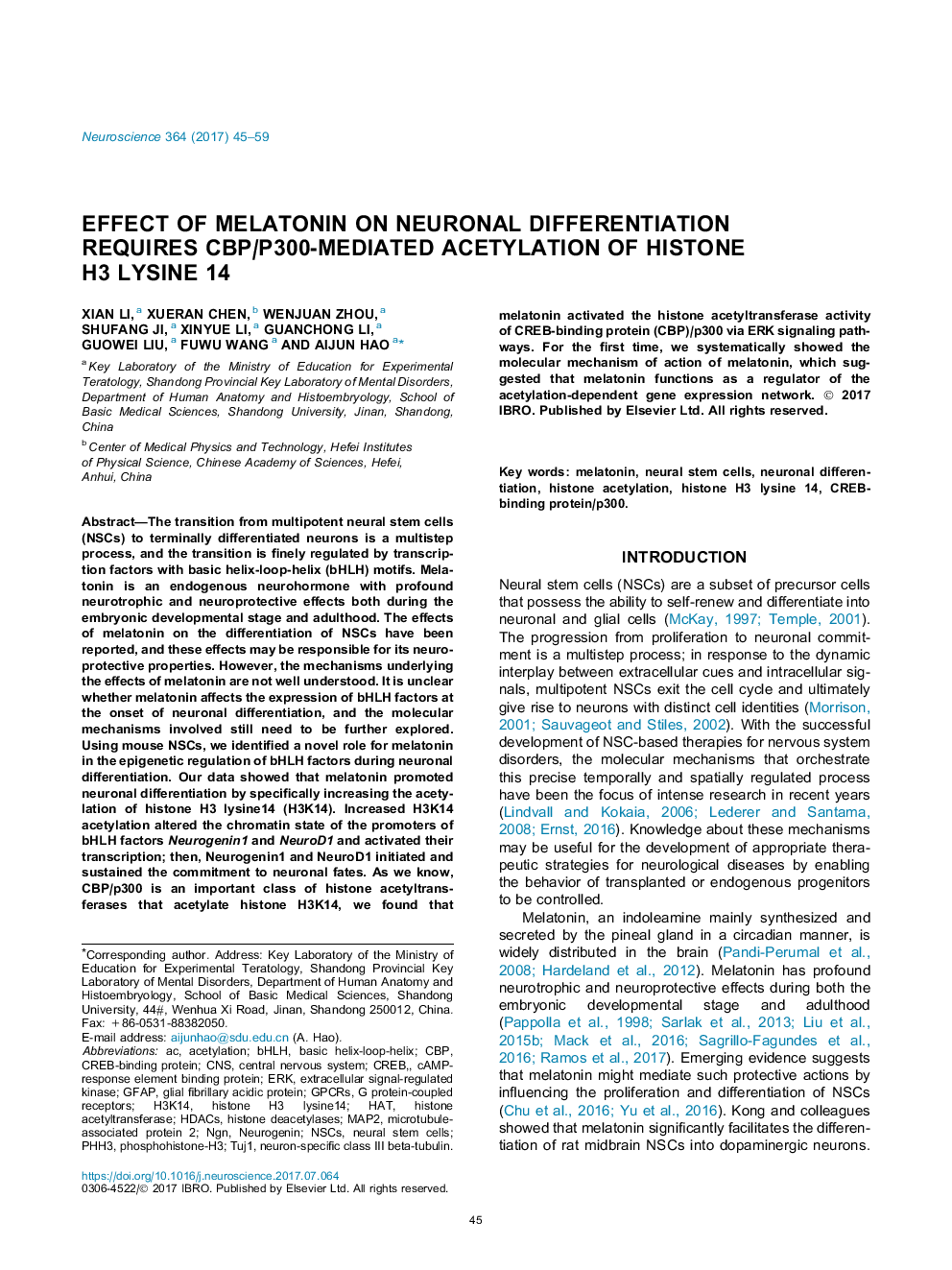| Article ID | Journal | Published Year | Pages | File Type |
|---|---|---|---|---|
| 5737567 | Neuroscience | 2017 | 15 Pages |
â¢Melatonin promotes neuronal differentiation by specifically increasing the acetylation of histone H3 at lysine14 in NSCs.â¢Increased H3K14 acetylation alters the chromatin state of the Ngn1 and NeuroD1 promoters and activates their transcription.â¢Melatonin regulates the histone acetyltransferase (HAT) activity of CBP and p300 via the ERK1/2 signaling pathway.
The transition from multipotent neural stem cells (NSCs) to terminally differentiated neurons is a multistep process, and the transition is finely regulated by transcription factors with basic helix-loop-helix (bHLH) motifs. Melatonin is an endogenous neurohormone with profound neurotrophic and neuroprotective effects both during the embryonic developmental stage and adulthood. The effects of melatonin on the differentiation of NSCs have been reported, and these effects may be responsible for its neuroprotective properties. However, the mechanisms underlying the effects of melatonin are not well understood. It is unclear whether melatonin affects the expression of bHLH factors at the onset of neuronal differentiation, and the molecular mechanisms involved still need to be further explored. Using mouse NSCs, we identified a novel role for melatonin in the epigenetic regulation of bHLH factors during neuronal differentiation. Our data showed that melatonin promoted neuronal differentiation by specifically increasing the acetylation of histone H3 lysine14 (H3K14). Increased H3K14 acetylation altered the chromatin state of the promoters of bHLH factors Neurogenin1 and NeuroD1 and activated their transcription; then, Neurogenin1 and NeuroD1 initiated and sustained the commitment to neuronal fates. As we know, CBP/p300 is an important class of histone acetyltransferases that acetylate histone H3K14, we found that melatonin activated the histone acetyltransferase activity of CREB-binding protein (CBP)/p300 via ERK signaling pathways. For the first time, we systematically showed the molecular mechanism of action of melatonin, which suggested that melatonin functions as a regulator of the acetylation-dependent gene expression network.
Graphical abstractDownload high-res image (105KB)Download full-size image
